Kharkiv fightback and jets roar in rehearsal - round-up
- Published
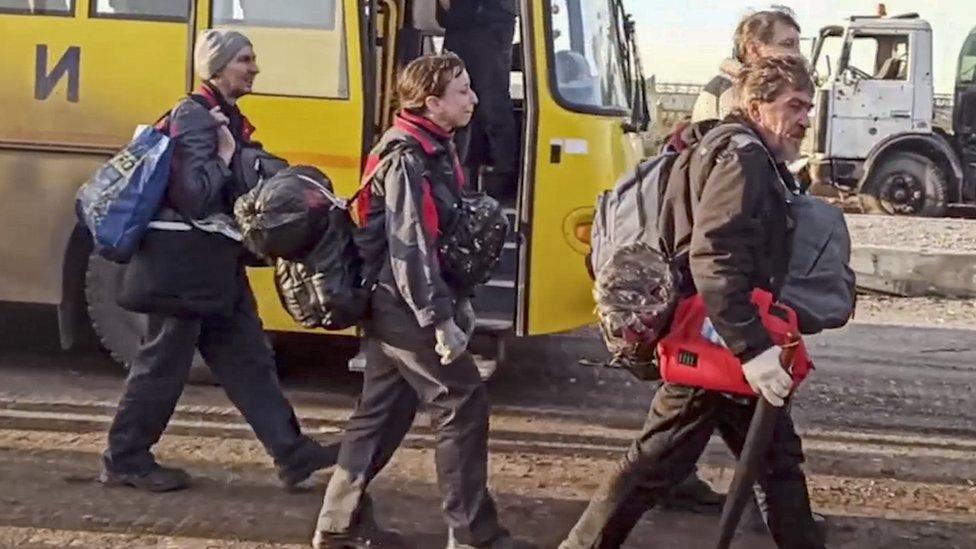
All elderly people, women and children have been evacuated from the besieged Azovstal steelworks in Mariupol, say Ukraine and Russia.
The operation to rescue civilians trapped there began a week ago.
It has been co-ordinated by the United Nations and Red Cross, which have not confirmed the development.
Ukrainian forces are holding out at the heavily bombed plant, the last part of the city not under Russian control.

Ukrainian forces fight back around Kharkiv
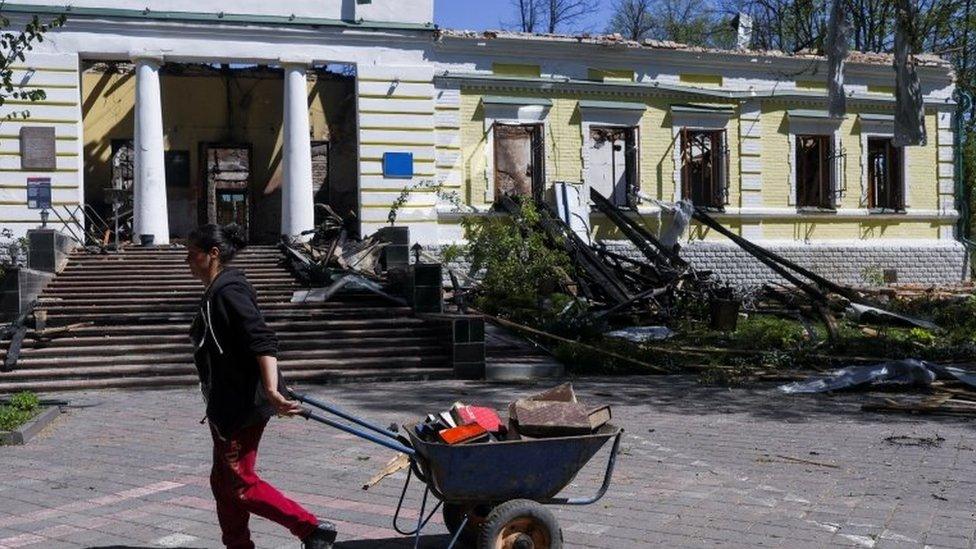
Ukrainian troops are trying to regain full control of the region
Intense fighting is continuing in the Kharkiv region of Ukraine as troops attempt to regain control of the area from the Russians.
It comes after Ukraine's armed forces claimed on Saturday that they had taken five villages north-east of the country's second largest city.
Analysts say the Ukrainian operation is developing into a successful counter-offensive.
Kharkiv has been the focus of intense shelling since the February invasion.
The governor of Kharkiv region said on Saturday that Russian troops continue "to fire on civilians in Kharkiv region".

Moscow readies itself for parade and turns up rhetoric
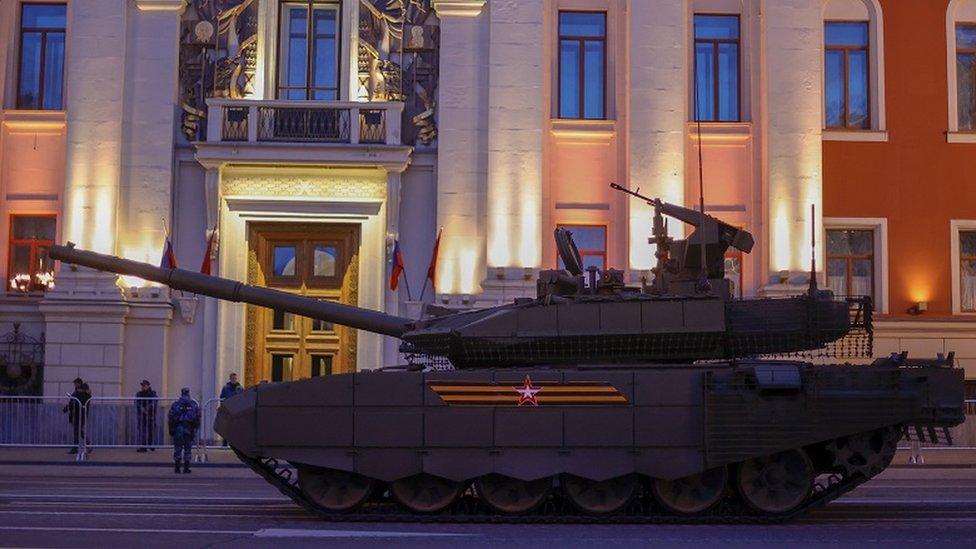
The annual military parade in Moscow's Red Square has a new significance this year, as Russian forces continue their two-month assault in Ukraine.
The 9 May, Victory Day, is one of the most important holidays in the Russian calendar.
On Monday, there will be military processions all over the country to commemorate the Soviet defeat of Nazi Germany in 1945. As always, flags flutter from almost every building and shop windows are decorated with golden stars.
But this year will be different. Russia is at war once again - this time with its neighbour.
Vladimir Putin may have hoped to have used the anniversary to present the Russian people with a victory of his own in Ukraine. But following an invasion which hasn't gone to plan, he's yet to even accomplish his most recently stated aim to take the Donbas region.

Swiss neutrality faces challenge from its youth
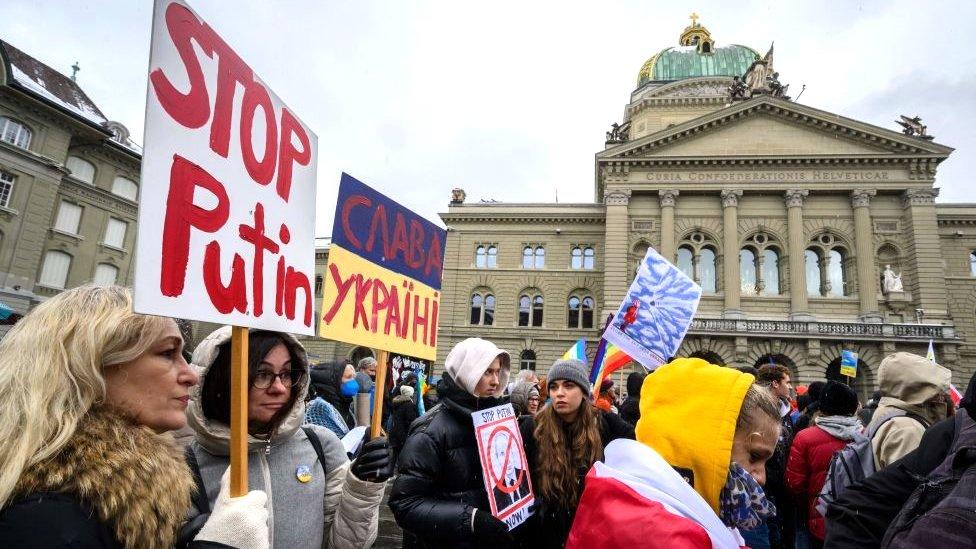
Protests against Russia's invasion of Ukraine have drawn crowds of tens of thousands across Switzerland
How does a European country stay neutral when war rages in Europe? Switzerland managed it during the first and second world wars, but now, watching Russia's attack on Ukraine, many Swiss are rethinking their long-established position.
Switzerland was granted "eternal neutrality" at the Congress of Vienna in 1815. It was a pragmatic, geopolitical move that was supported because the country was seen as a harmless buffer between Europe's big powers - France on one side, Austria and Prussia on the other - and it preserved Switzerland's safety while its neighbours slaughtered each other.
During World War Two, Swiss neutrality was more pragmatic than heroic. Switzerland mobilised all its able-bodied men to defend its borders, but it also banked gold looted by the Nazis and, in a shameful move designed to keep Germany at bay, turned away thousands of Jewish refugees - a policy it finally apologised for in the 1990s.
For decades, neutrality has enjoyed almost universal support among the Swiss: opinion polls have shown approval ratings of well over 90%. But now the Swiss are soul-searching.

Watch: Drone reveals damage from Russian shelling in Kyiv


Meanwhile, several missiles have hit the port city of Odesa, with four explosions heard in the Voznesensky district.
Ukrainian authorities confirmed that several locations around Odesa's airport were hit. That includes the runway, which was hit twice, and a furniture production plant.
Russian forces are continuing to focus their attacks on the east of the country, but resistance from Ukrainian troops is slowing their progress.

War in Ukraine: More coverage

Related topics
- Published7 May 2022
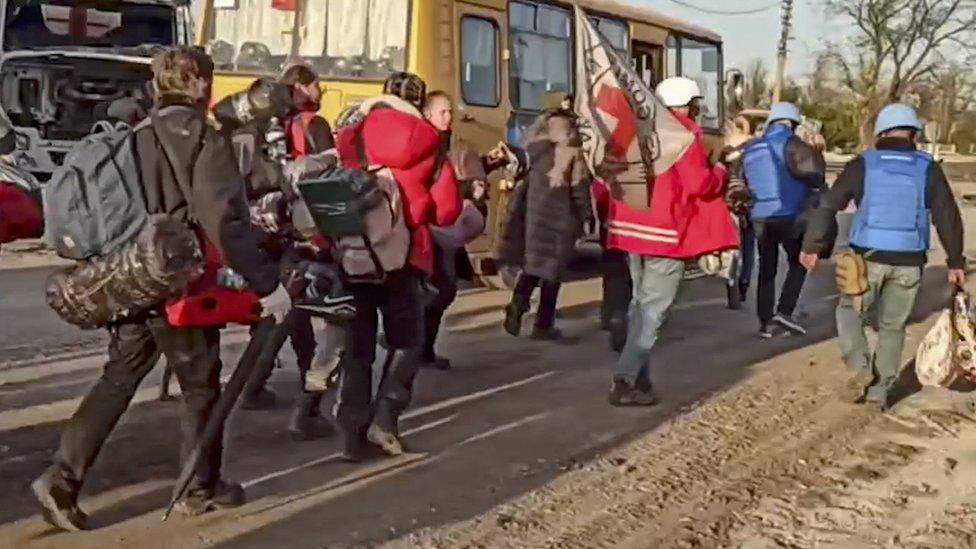
- Published7 May 2022
